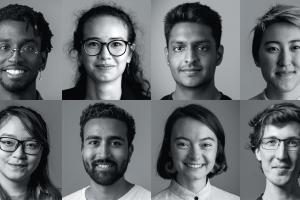In 2019–20, we are excited to gather alumni and friends together for a series of events around the globe, so we can connect and reconnect, discuss, celebrate, and share ideas for empowering Grinnellians.
Features
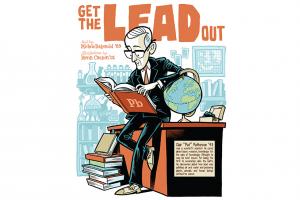
Clair "Pat" Patterson ’43 was a scientist's scientist. He cared about basic research, knowledge for the sake of knowledge. Although he may be best known for being the first to accurately date the Earth, his discoveries about how lead was polluting air and water and poisoning plants, animals, and human beings defined his career.
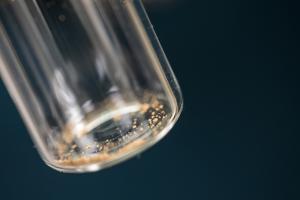
In the basement of Burling Library, in the perfectly chilled Print and Drawing Study Room, on an even chillier February afternoon in Grinnell, students eagerly crowded around Jiayun Chen ’19 and Susan Wood, professor of art history at Oakland University. Their attention remained fixed upon a small marble head, resting on a soft white pillow. Chen had examined the portrait before, but this time, she found something new.
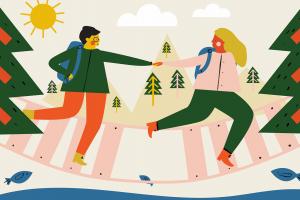
For students whose parents didn’t complete a four-year college degree, getting into Grinnell is just the first hurdle. Figuring out how to survive, much less thrive, is a whole series of hurdles. And it’s less a sprint over a brightly lit track than a marathon through a dark tunnel with blind curves, switchbacks, and alarming obstacles.
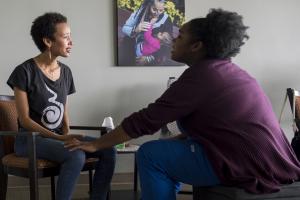
When she was an expectant mom, Monique Hagan knew the risks that she faced: African-American women are twice as likely to experience pregnancies that result in early delivery, low birth weight, or even infant death, according to National Vital Statistics.

In his previous life as a professor of Russian history, Marshall Poe ’84 enjoyed reading as many scholarly works as he had time and inclination to digest.

-
You’ll need a computer with a broadband Internet connection, a decent microphone, a set of earphones, and a reasonably quiet place to record.

Grinnellians in the New Books Network catalog include current, past, and retired professors Andrew Hsieh, who was interviewed (along with co-author Sherman Cochran) about The Lius of Shanghai (Harvard University Press, 20
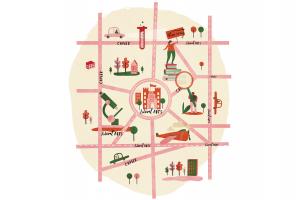
Psychology major to zookeeper? Biology coursework to Delta pilot?
Grinnellians have long been told that a liberal arts degree prepares them to excel at just about anything. The wide range of careers that Grinnellians have pursued successfully bolsters that argument.
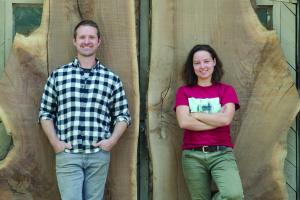
From flowering crabapples to sycamores, birches, and firs, the trees dotting Grinnell’s campus have served as familiar landmarks — as well as beloved spots to climb, make art, and meet for class — for generations of Grinnell students.
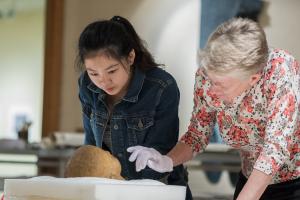
As new learning spaces dedicated to humanities and social studies rise up on the Grinnell campus, so are conversations springing up about what those disciplines commonly identified as “the humanities” mean to our lives.
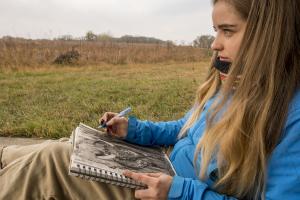
Elfenbein: It’s the study of how people make sense of their lives, but importantly, what it is that they produce to communicate, and how they communicate what it is they’re thinking about and experiencing.

